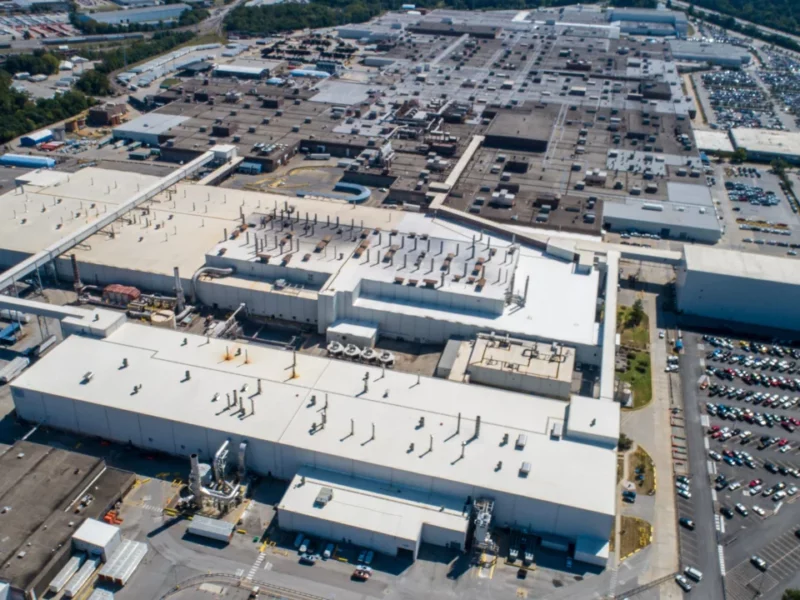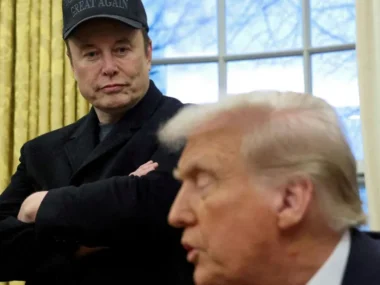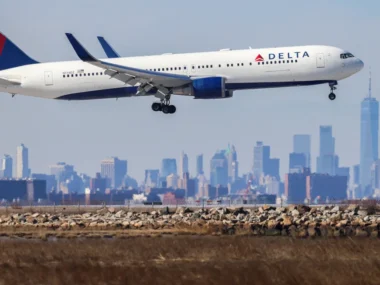The United Auto Workers union surprised Ford by intensifying their strike, instructing employees to stop work at the company’s largest facility. On Wednesday night, the union directed 8,700 workers to strike at the Kentucky Truck Plant, responsible for producing some of Ford’s crucial vehicles, including the heavy-duty version of the F Series pickup and its full-size SUVs.
UAW President Shawn Fain stated, “We have been unequivocal and have exercised patience, but Ford hasn’t grasped the message. It’s high time for a just contract at Ford and the other major automakers. If, even after four weeks, they fail to comprehend this, the 8,700 workers shutting down this highly profitable plant will convey the message effectively.”
A Ford representative informed the media that the UAW had requested a negotiation session with Ford scheduled for Wednesday evening. They mentioned that the union was seeking a different proposal from Ford compared to what had been previously presented. However, after a very brief discussion that lasted only a few minutes, Fain, the UAW President, reportedly told company officials, “If that’s all you got, you just lost KTP,” leading to the meeting’s abrupt conclusion, according to Ford officials.
A source within the union provided a similar account of the concise negotiating session. According to this source, Fain told Ford officials, “If this is all you have for us, our members’ well-being and my commitment are worth more than this. This just cost you the Kentucky Truck Plant.”
The union official did mention that Fain informed the company that he and the union’s top negotiator at Ford would consider the offer. However, the offer presented was the same one that Ford had proposed to the union several weeks earlier, even though the company had been indicating that a new economic offer was forthcoming.
Since September 15, the UAW has been on strike, not only against Ford but also General Motors and Stellantis. This isn’t the first time the union has expanded the strike to include more facilities, but it is the first time they’ve done so without prior public notice.
The strike’s expansion took place at 6:30 pm ET on Wednesday evening, although there were discussions on the plant floor suggesting that workers might go on strike after 6 pm.
By targeting the Kentucky Truck Plant, the union is focusing on a highly profitable segment of Ford’s product lineup. Vehicles produced at this plant generate approximately $25 billion in annual revenue for the company, accounting for about one-sixth of its total global revenue. While it doesn’t manufacture the F-150, Ford’s top-selling vehicle, it is responsible for producing larger versions of the truck, as well as the Ford Expedition and Lincoln Navigator SUVs.
Until Wednesday night, the UAW’s strike at Ford had primarily impacted the Wayne, Michigan plant, which builds the Ford Ranger small pickup and the Bronco, along with the Chicago Assembly plant responsible for manufacturing the Ford Expedition and Lincoln Aviator SUVs. While these are all profitable vehicles, they don’t carry the same level of profitability as Ford’s heavy-duty pickups and full-size pickups.
The company has stated that it believes the economic terms of the offer, including wages and benefits, are the most favorable among the three automakers.
Ford expressed its concern about the UAW leadership’s decision to reject this record contract offer, which the UAW itself had publicly characterized as the best offer available, and to strike at the Kentucky Truck Plant. They emphasized that this action has significant consequences not only for their workforce but also for suppliers, dealers, and commercial customers.
Shutting down the Kentucky Truck Plant also places about a dozen additional Ford operations and numerous supplier operations at risk, collectively employing well over 100,000 individuals.
There had been hopes that substantial progress was being made, potentially leading to an agreement to end the strike at one of the automakers. On a positive note, UAW President Fain revealed that GM had agreed to a crucial bargaining demand, which involved including workers at a joint venture battery plant and others planned in the national master agreement with the union.
The union is particularly concerned about the automakers’ transition from gasoline-powered vehicles to electric ones in the upcoming years, as this shift could potentially lead to job displacement by moving work away from union-represented engine and transmission plants to nonunion battery factories.
The Ford official also noted that most of this week’s negotiations between the UAW and the company have focused on the firm’s joint venture battery plants and retirement benefits, which are another significant bargaining demand for the union. Progress had been made on these issues prior to the Wednesday negotiating session.











